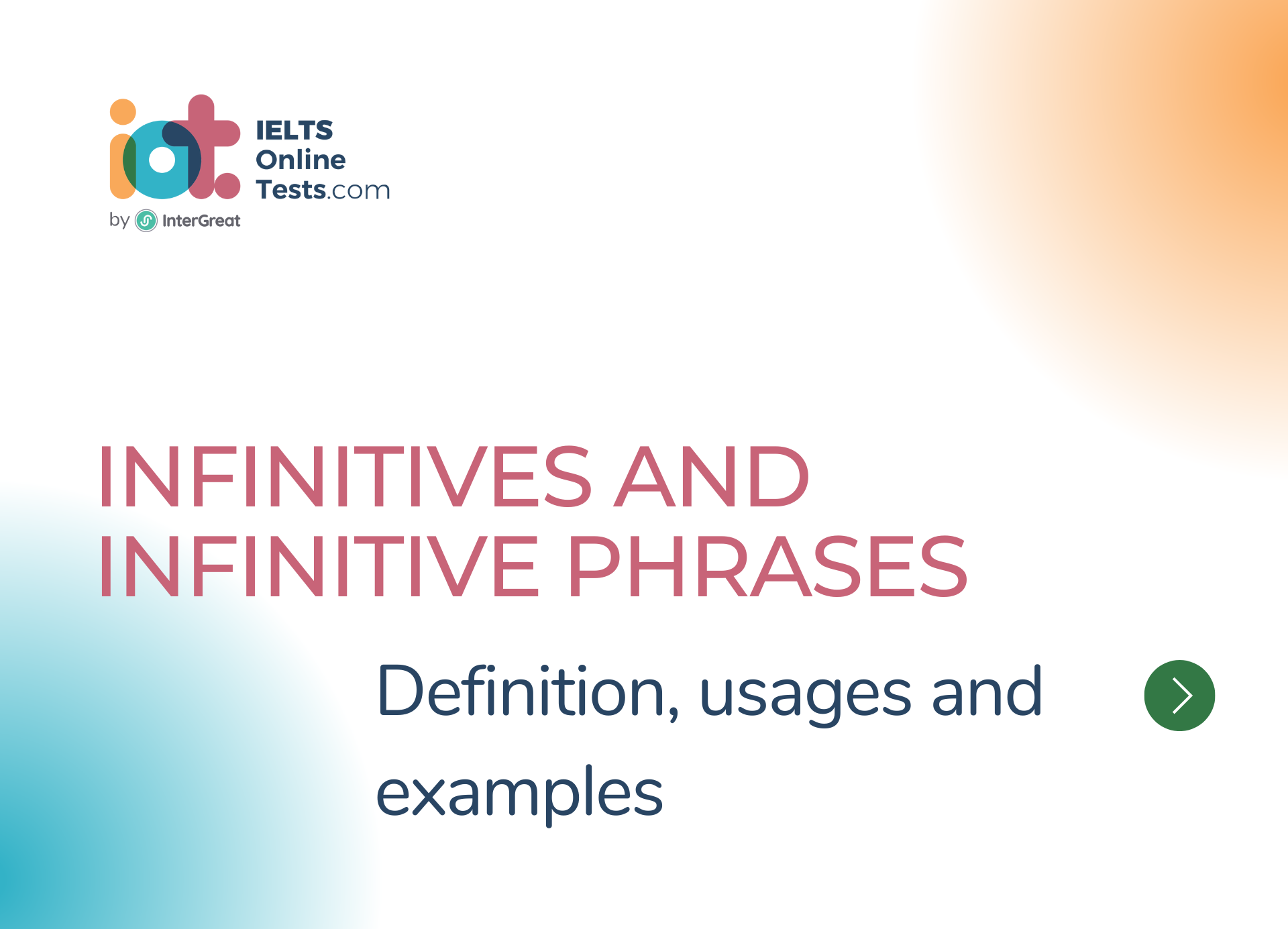
Infinitives and Infinitive Phrases
Infinitives are verb forms that are used as nouns, adjectives, or adverbs. They are typically preceded by the word "to" (e.g., to run, to eat, to learn). Infinitives can be used in different ways and are often part of infinitive phrases.
Here's more information about infinitives and infinitive phrases:
Infinitives as Nouns:
- Infinitives can function as the subject or object of a sentence, similar to a noun.
- Examples:
- "To travel is my dream." (subject)
- "She wants to learn French." (direct object)
- "His goal is to become a doctor." (predicate nominative)
Infinitives as Adjectives:
- Infinitives can be used as adjectives to modify or describe nouns.
- Examples:
- "He needs a book to study." (adjective modifying "book")
- "The opportunity to travel is exciting." (adjective modifying "opportunity")
- "I bought a ticket to watch the concert." (adjective modifying "ticket")
Infinitives as Adverbs:
- Infinitives can function as adverbs to modify verbs, adjectives, or adverbs.
- Examples:
- "She runs to stay fit." (adverb modifying "runs")
- "He is too tired to continue." (adverb modifying "tired")
- "She sings beautifully to entertain the audience." (adverb modifying "sings")
Forming Infinitive Phrases:
- Infinitive phrases consist of an infinitive along with its modifiers and complements.
- The infinitive phrase as a whole functions as a noun, adjective, or adverb in the sentence.
- Examples:
- "She was eager to explore new opportunities." (Infinitive phrase: "to explore new opportunities")
- "He needs a guide to help him navigate the city." (Infinitive phrase: "to help him navigate the city")
Split Infinitives:
- A split infinitive occurs when an adverb or other word is placed between "to" and the verb in an infinitive phrase.
- Example:
- "She decided to quickly finish her work." (split infinitive: "to quickly finish")
Understanding infinitives and infinitive phrases allows you to use verb forms in versatile ways in your writing. They can function as nouns, adjectives, or adverbs, providing additional depth and flexibility in sentence construction.




